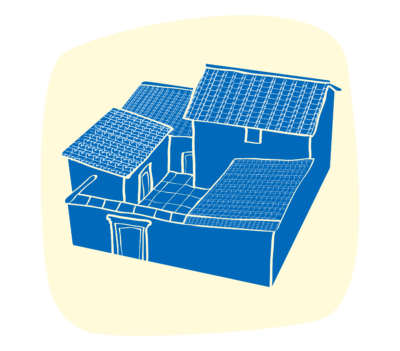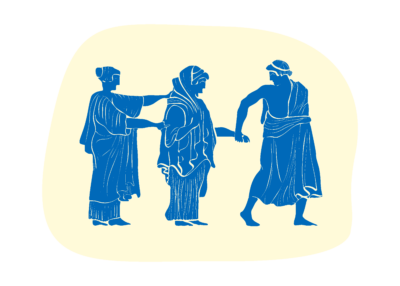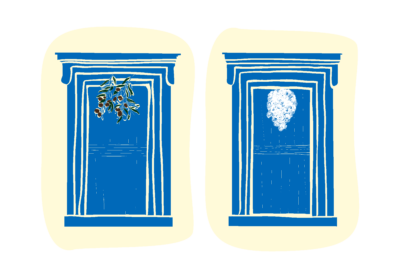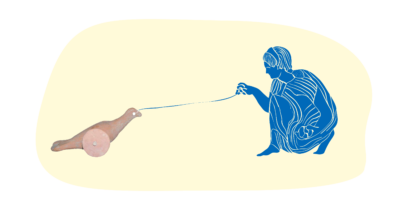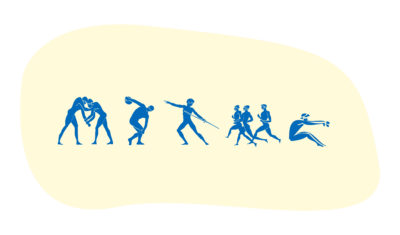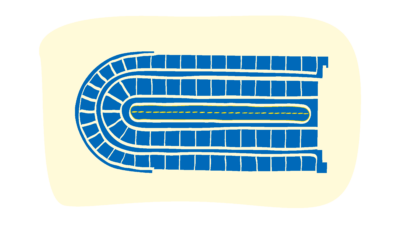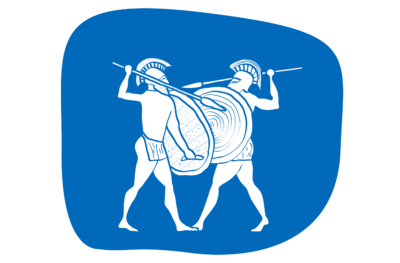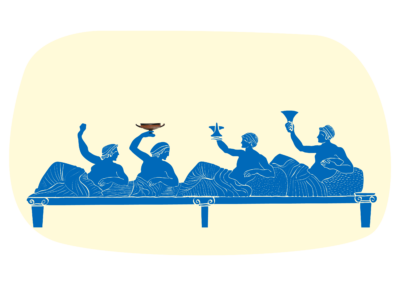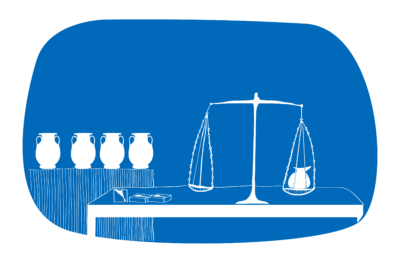School
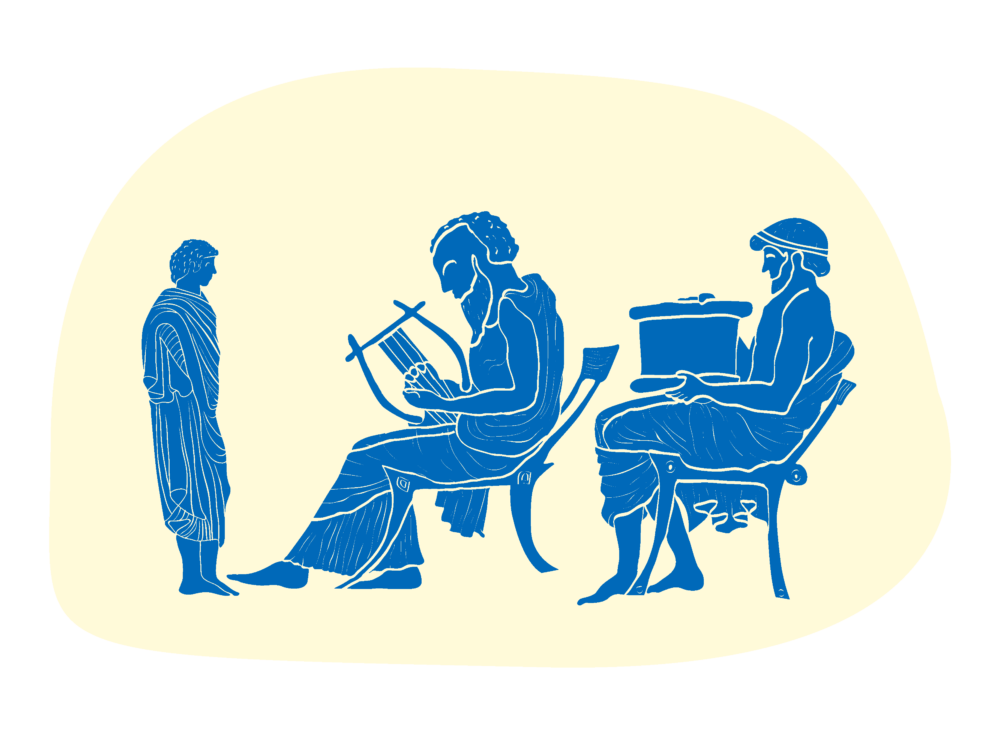
Education
Every morning, after akratisma (breakfast), I go to school with Clearchus, my pedagogue (tutor), who makes sure that I’m on time and that I don’t stop on the way to play with my friends.
At school, along with the other boys, I learn how to read, write and count, as well as how to play at least one musical instrument, such as the lyre or flute. Our favorite reads include The Trojan War and The Adventures of Odysseus.
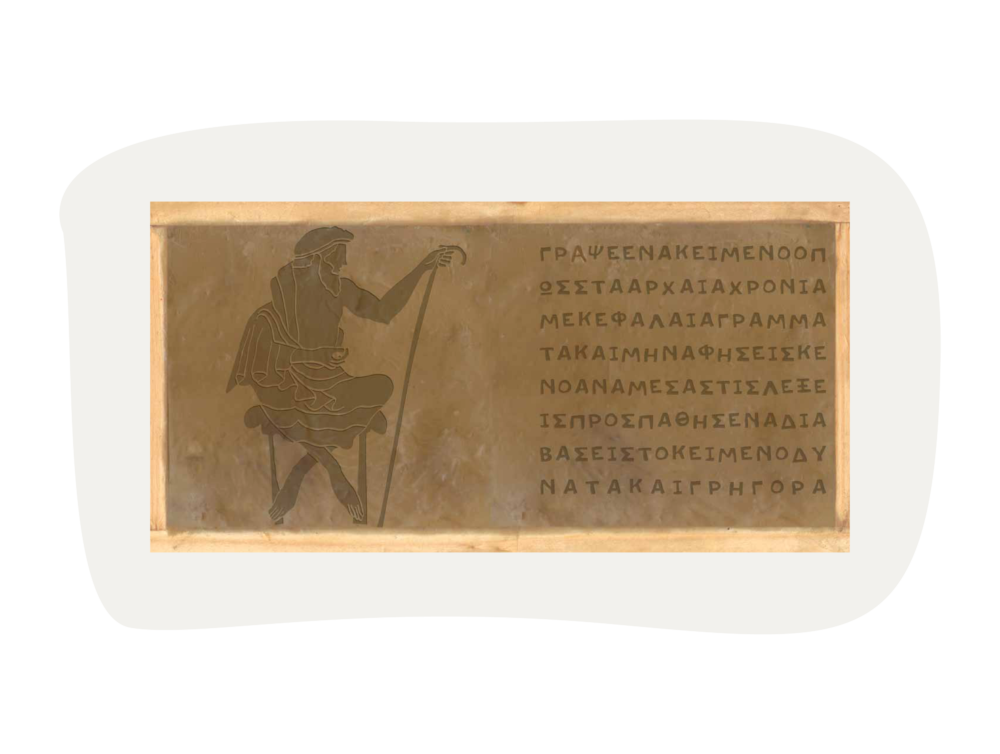
Writing
We practice writing on a wooden board whose surface is smeared with wax and with the help of a copper or wooden stylus, we engrave the letters.
Texts are written in capital letters and there are no spaces between words. So, reading is difficult, since there are no accents on the words either.
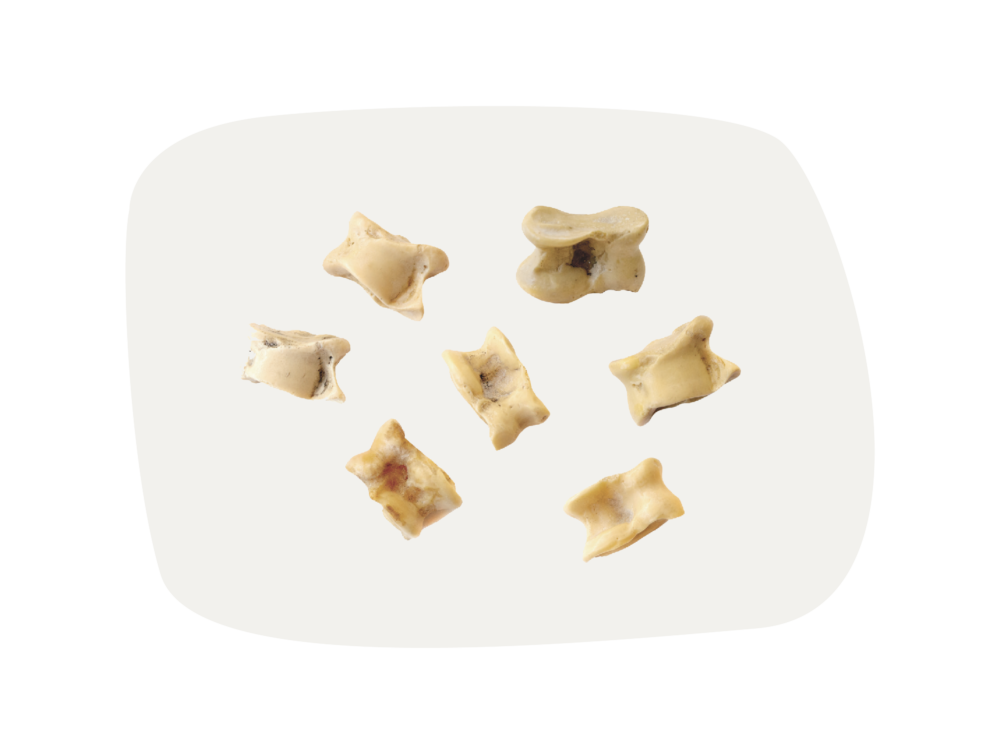
Reward
The teacher often rewards our efforts by giving us knuckles, as knuckles is one of our favorite games. In fact, it is written on an ancient epigram that “Konnaros received eighty knucklebones because he wrote beautifully, better than the other boys.”
Modern copies of knucklebones (astragaloi). The anklebone from the hind leg of a goat or sheep was mainly used to make them.
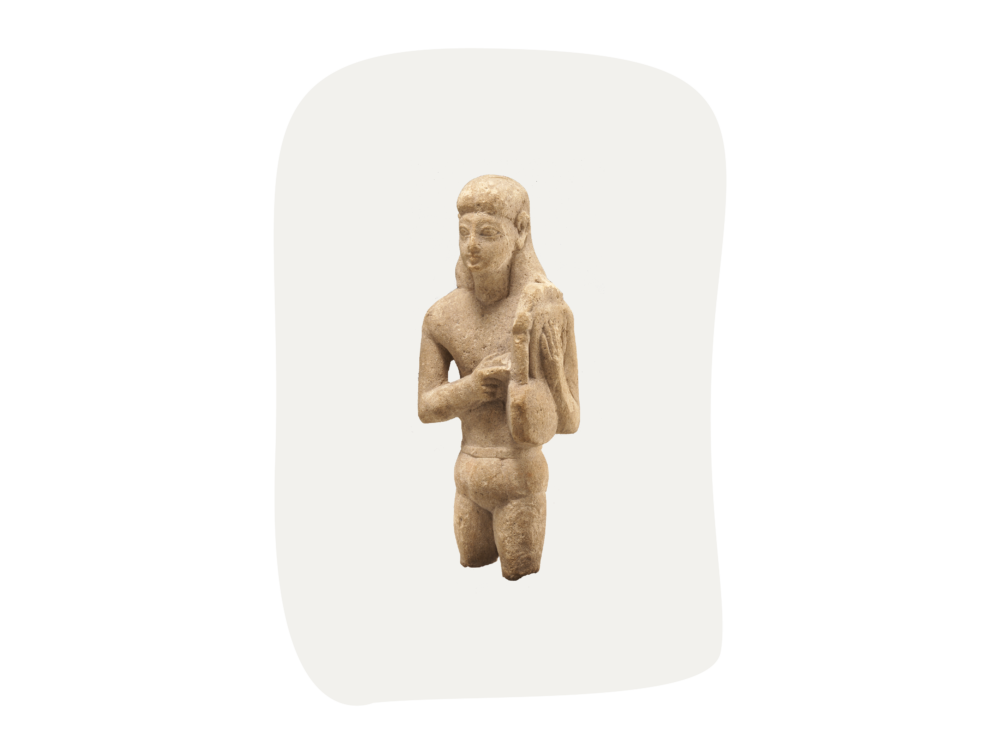
Music
Music is also an important subject at school. Since ancient times, music and dance have been considered the best education. We listen to the teacher carefully and learn to play the lyre or the flute, since we have no other way of noting the music.
On big celebrations that take place in the city, we play music, dance and sing.
Limestone statuette of Apollo playing the lyre. 6th century BC.
GLOSSARY:
- Akratisma: Breakfast. The other two meals of the day were called ariston and deipnon.
- Pedagogue: The most trusted slave of the house, who took care of the boys. The pedagogue accompanied them on their walks and was responsible for their behavior.
- Graphis: Writing instrument, fountainpen. In ancient times, it was also called “stylus.”

